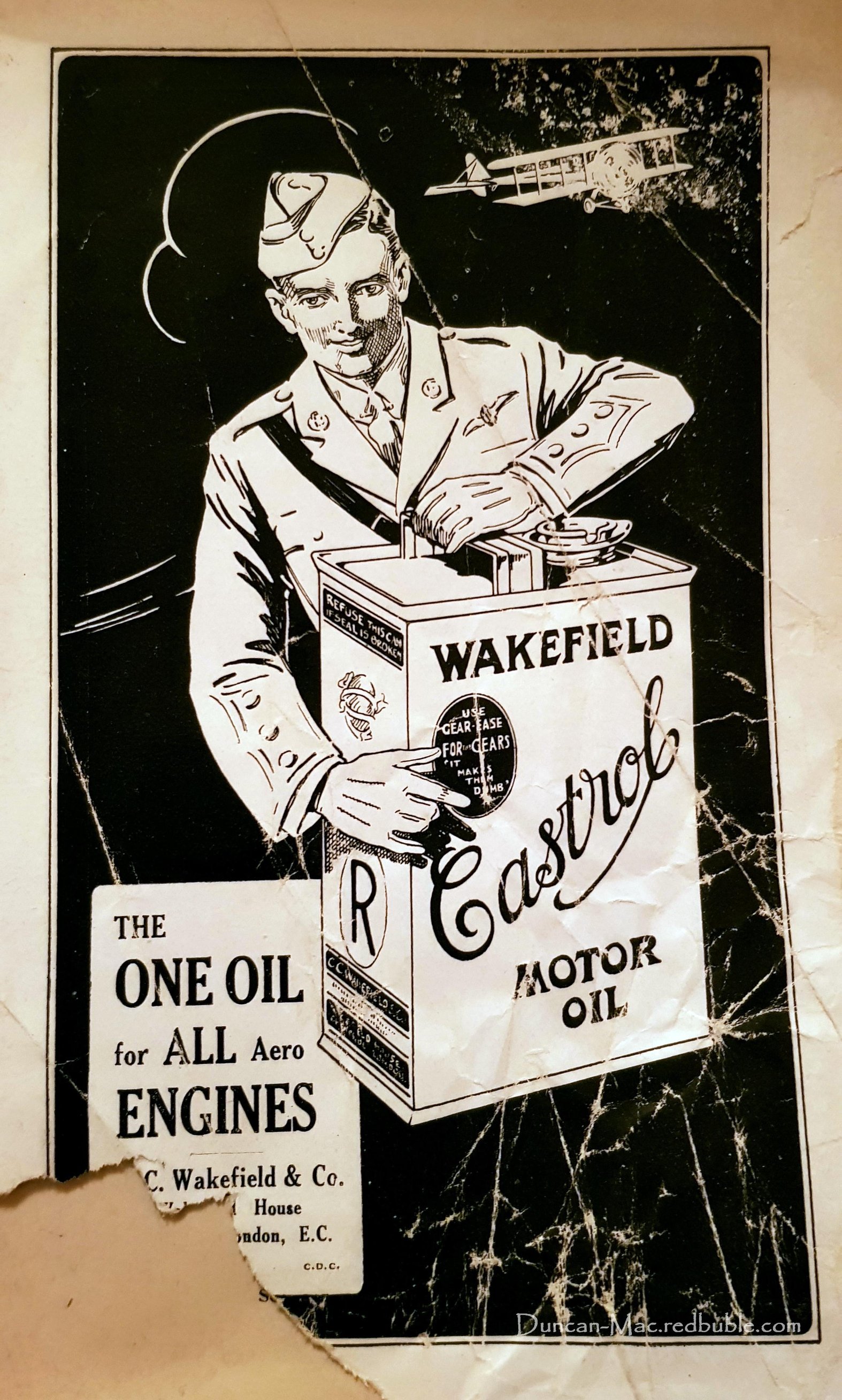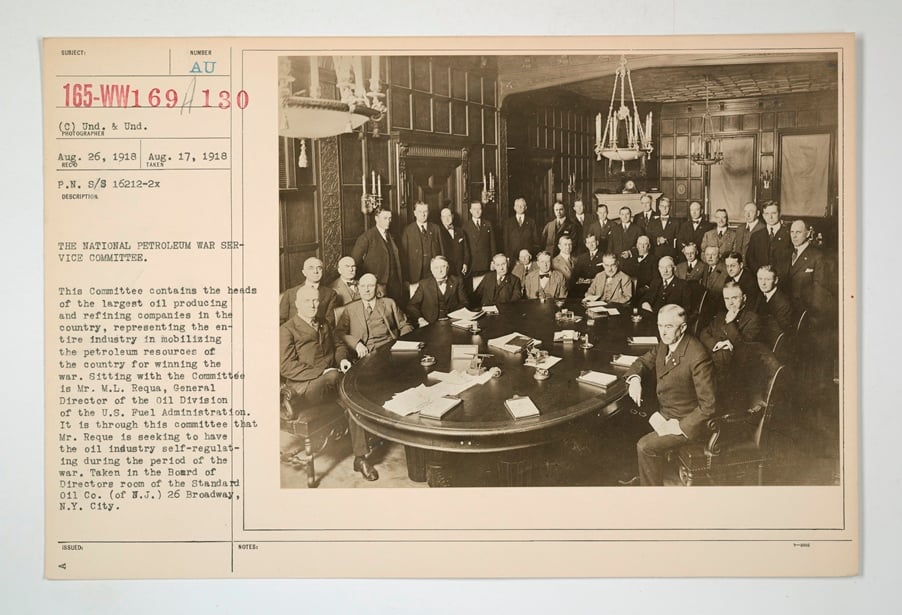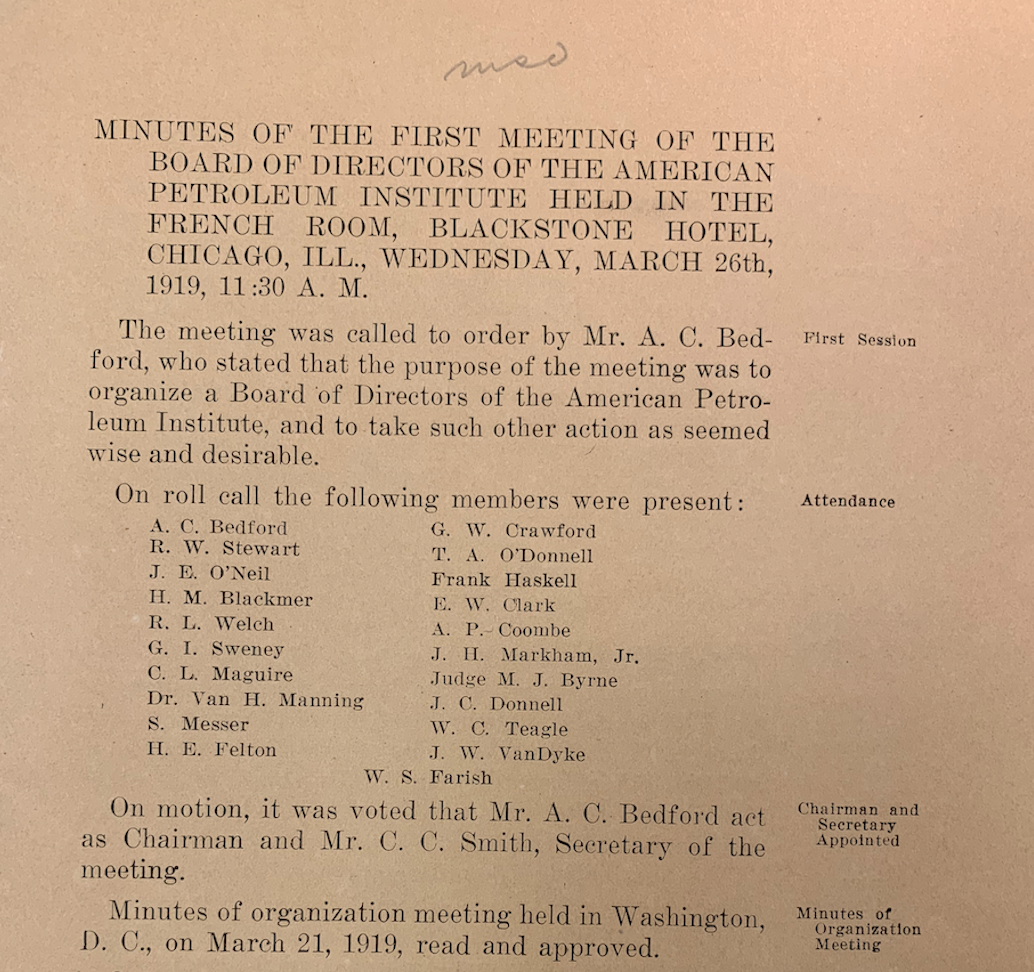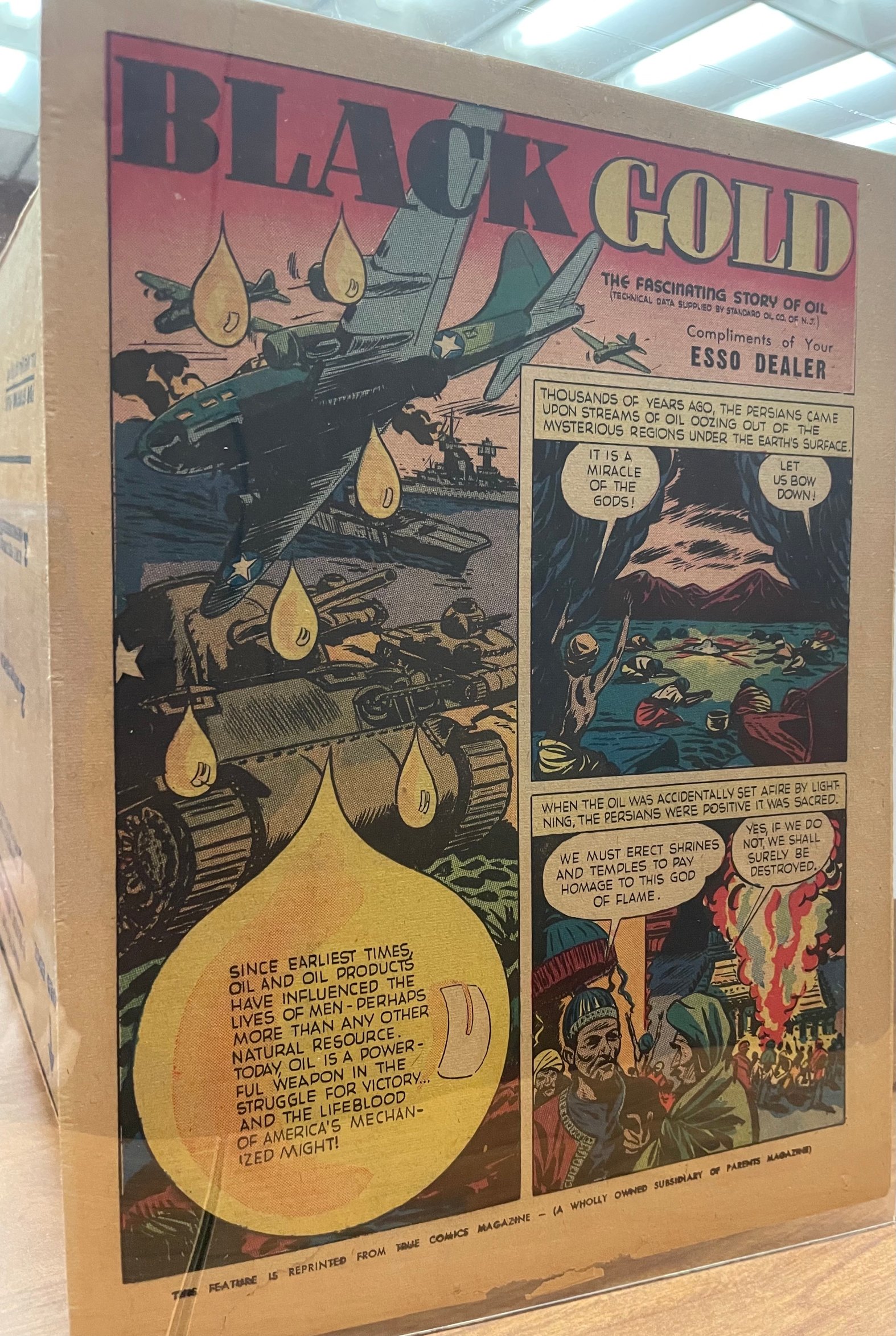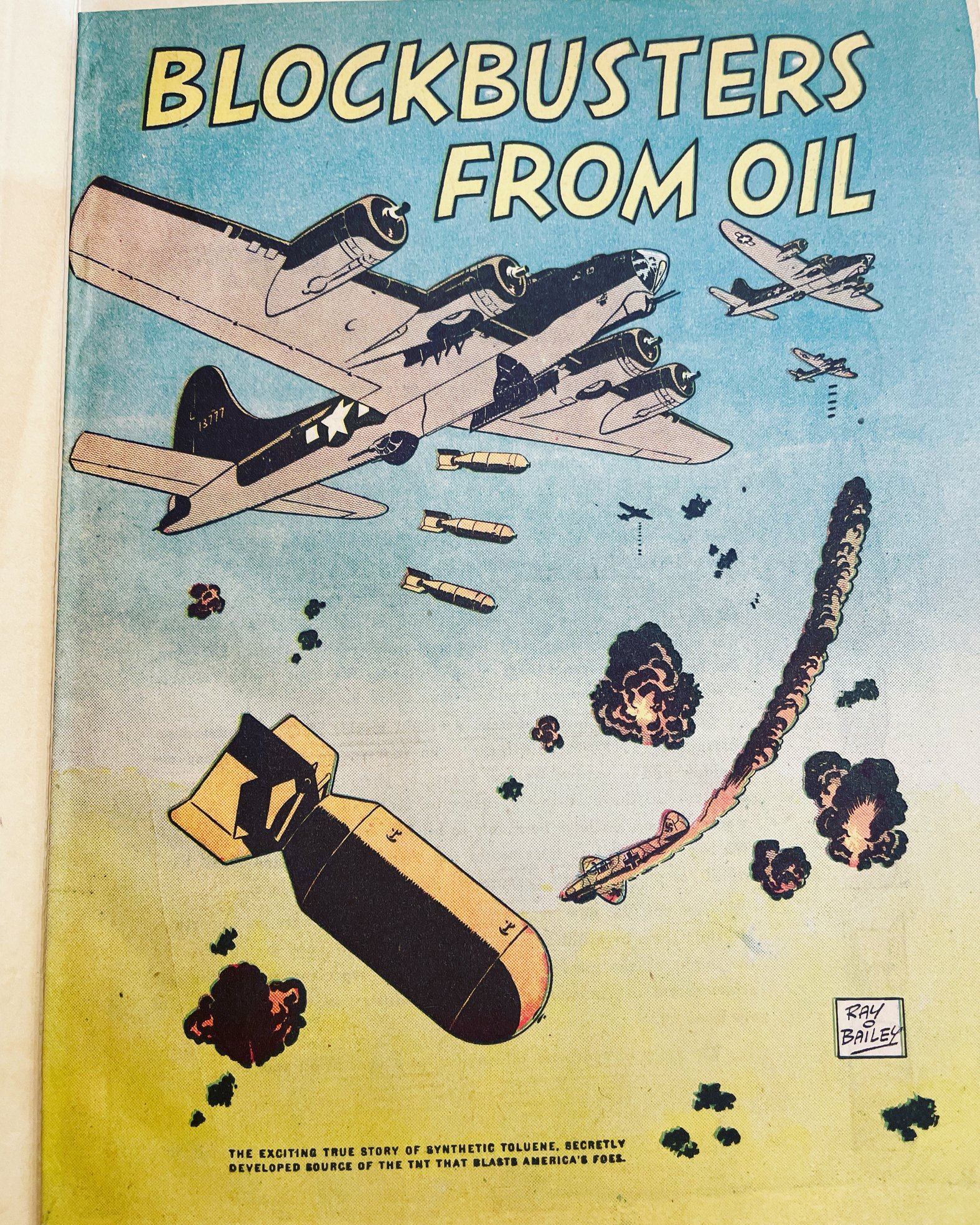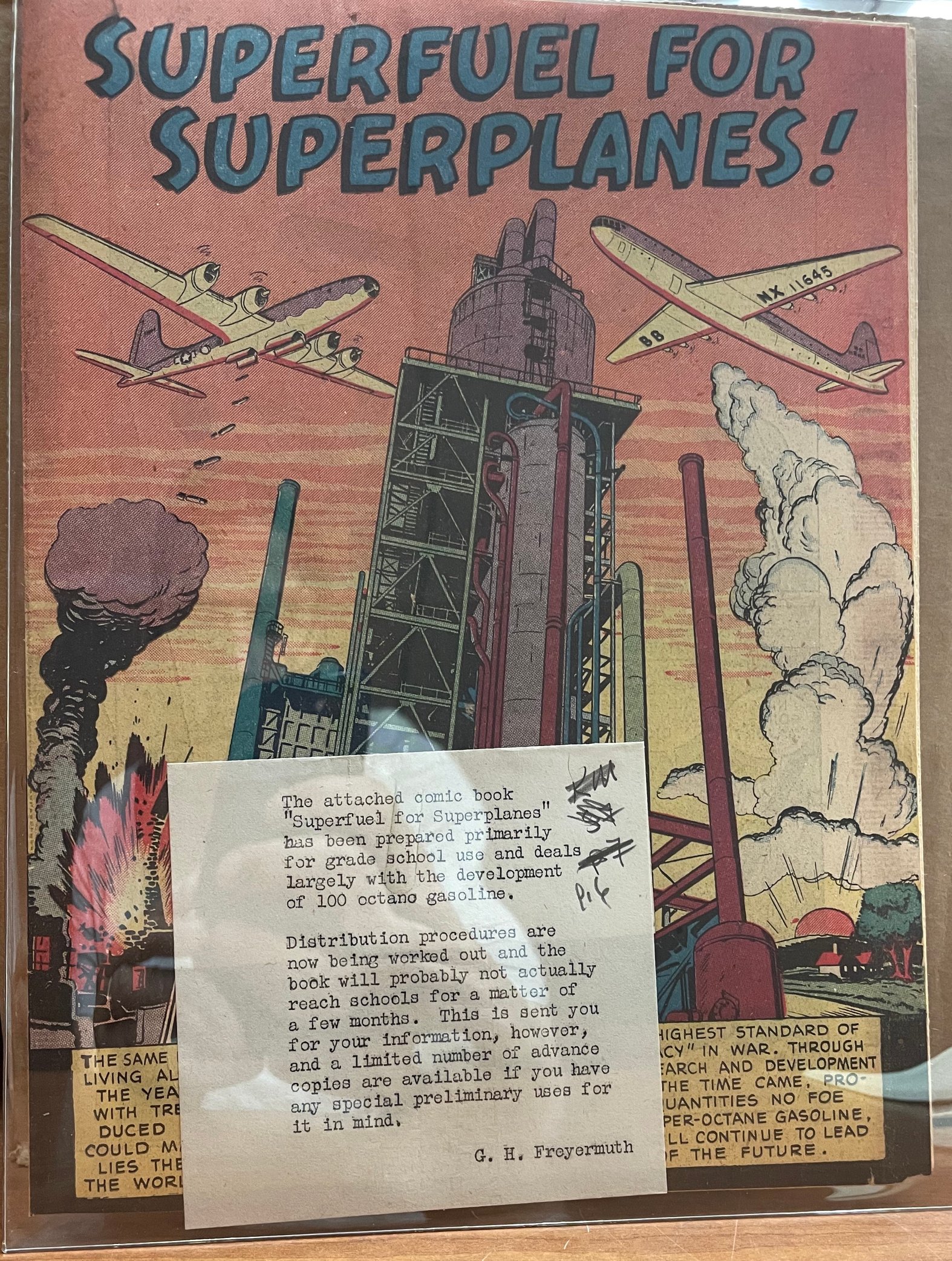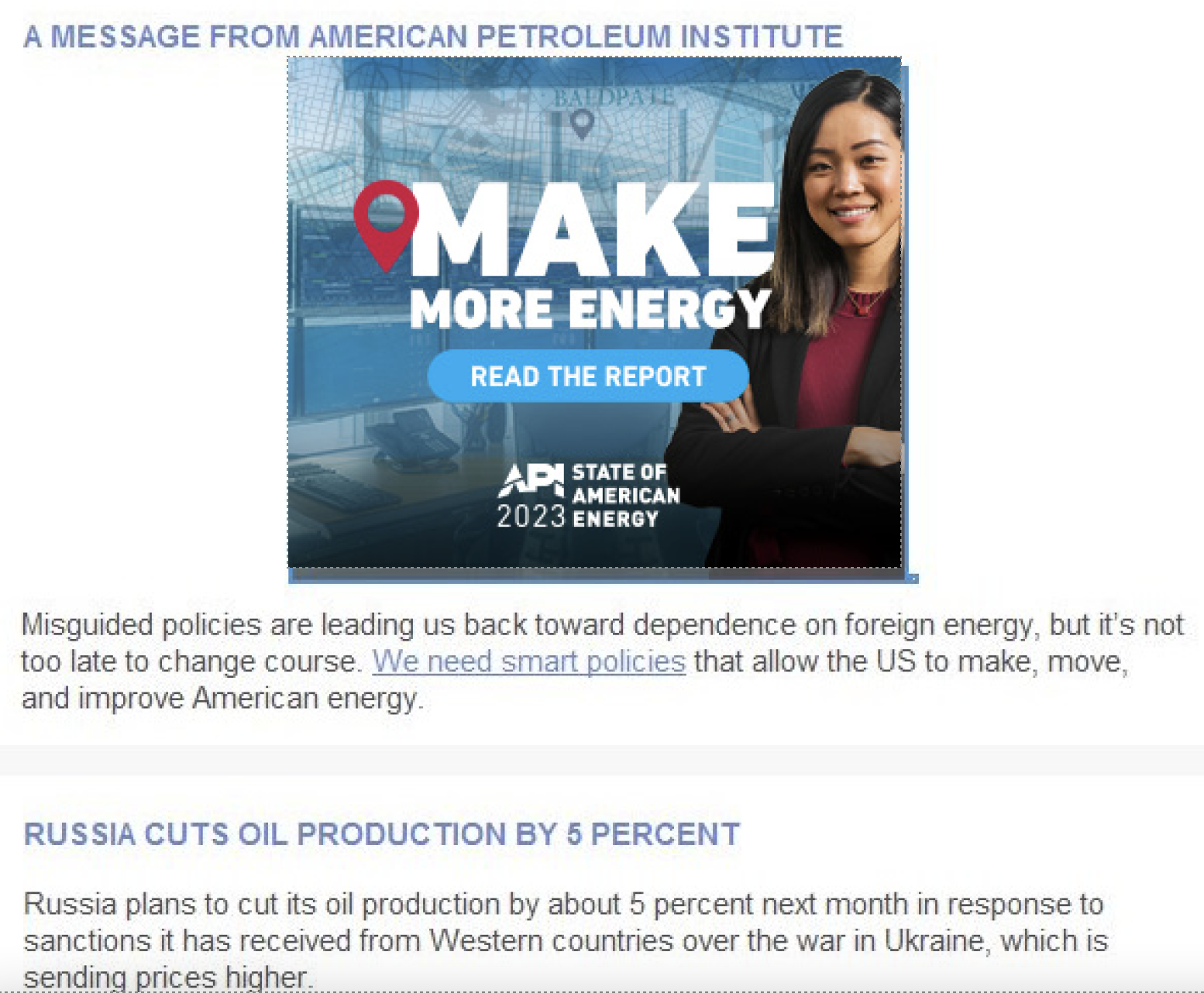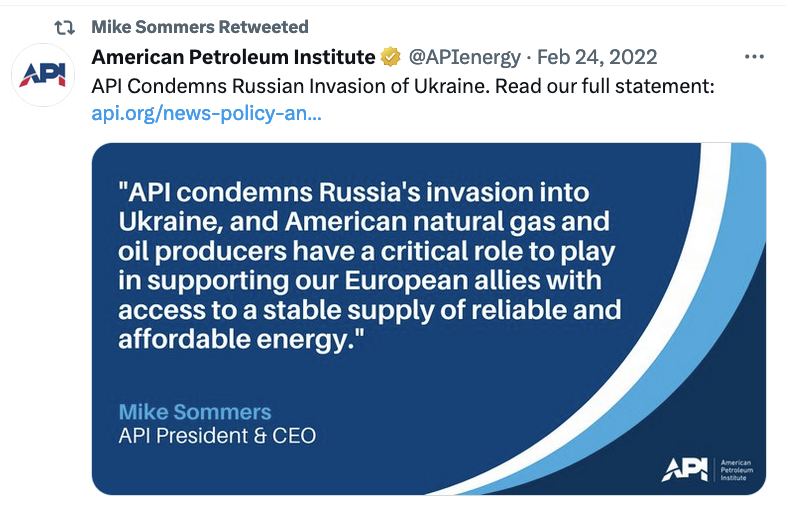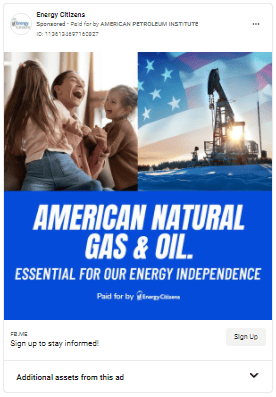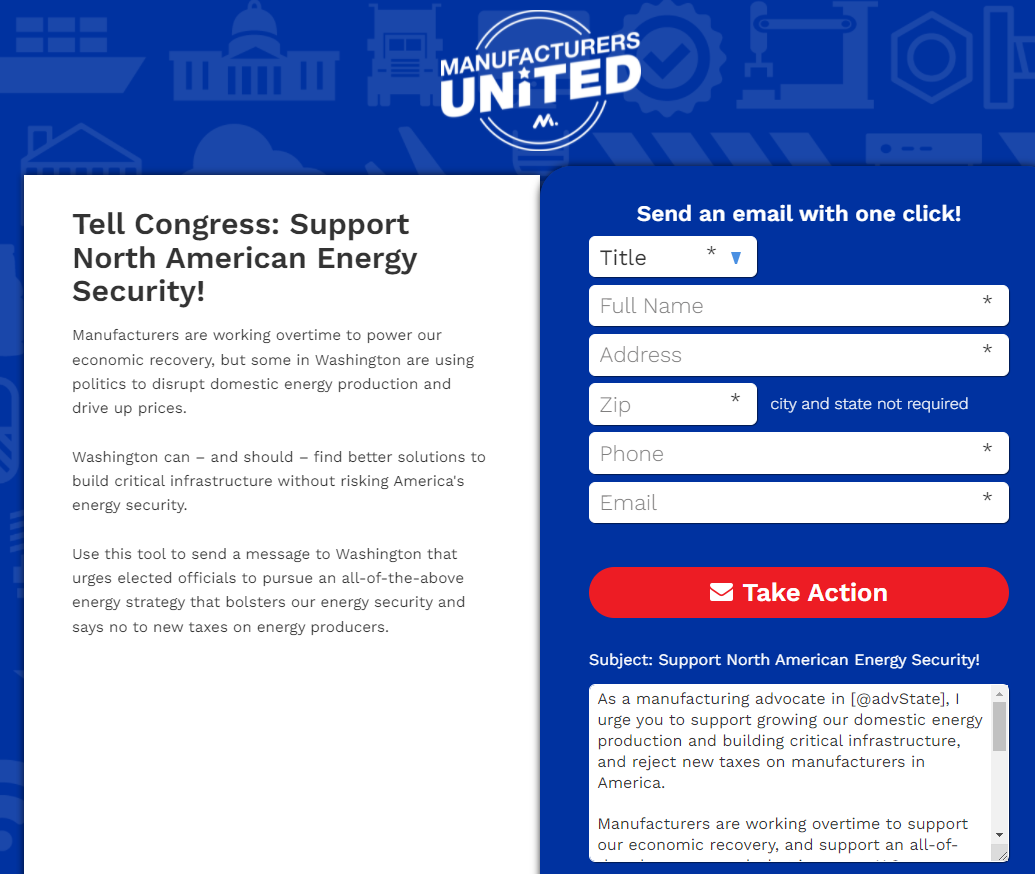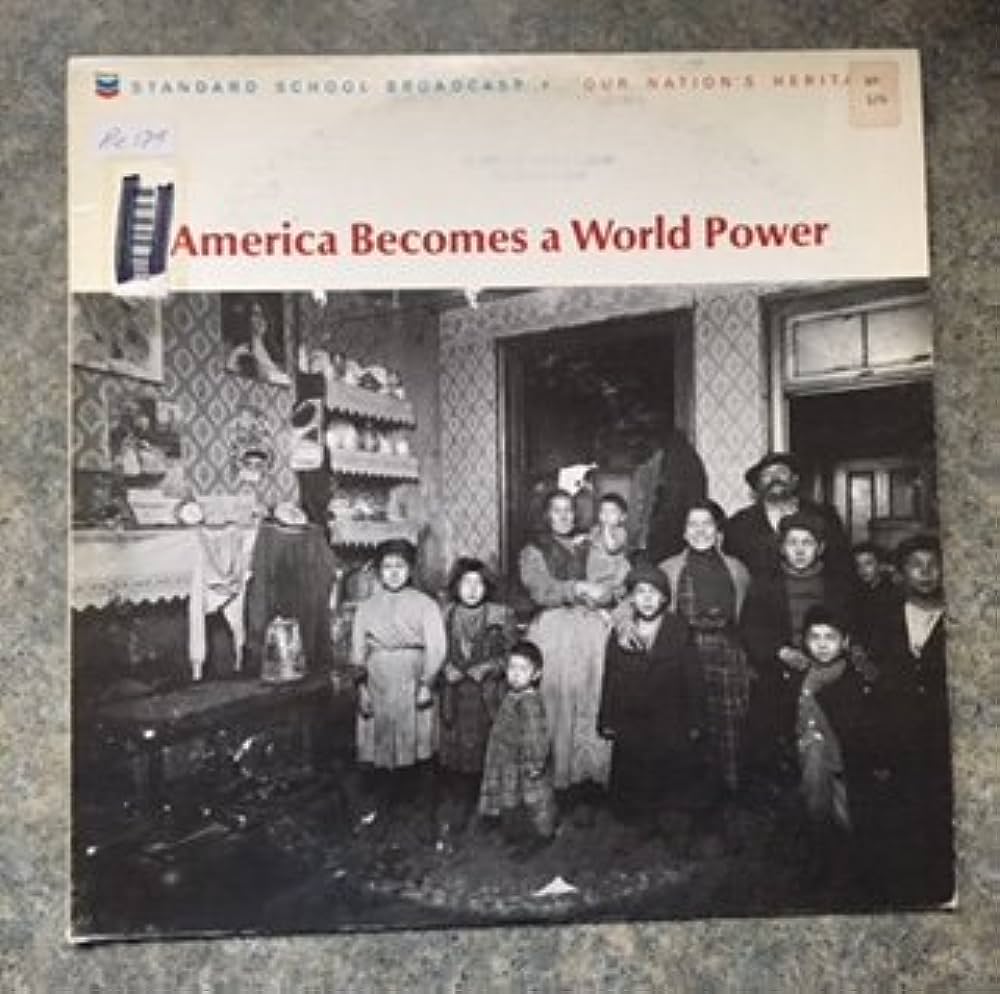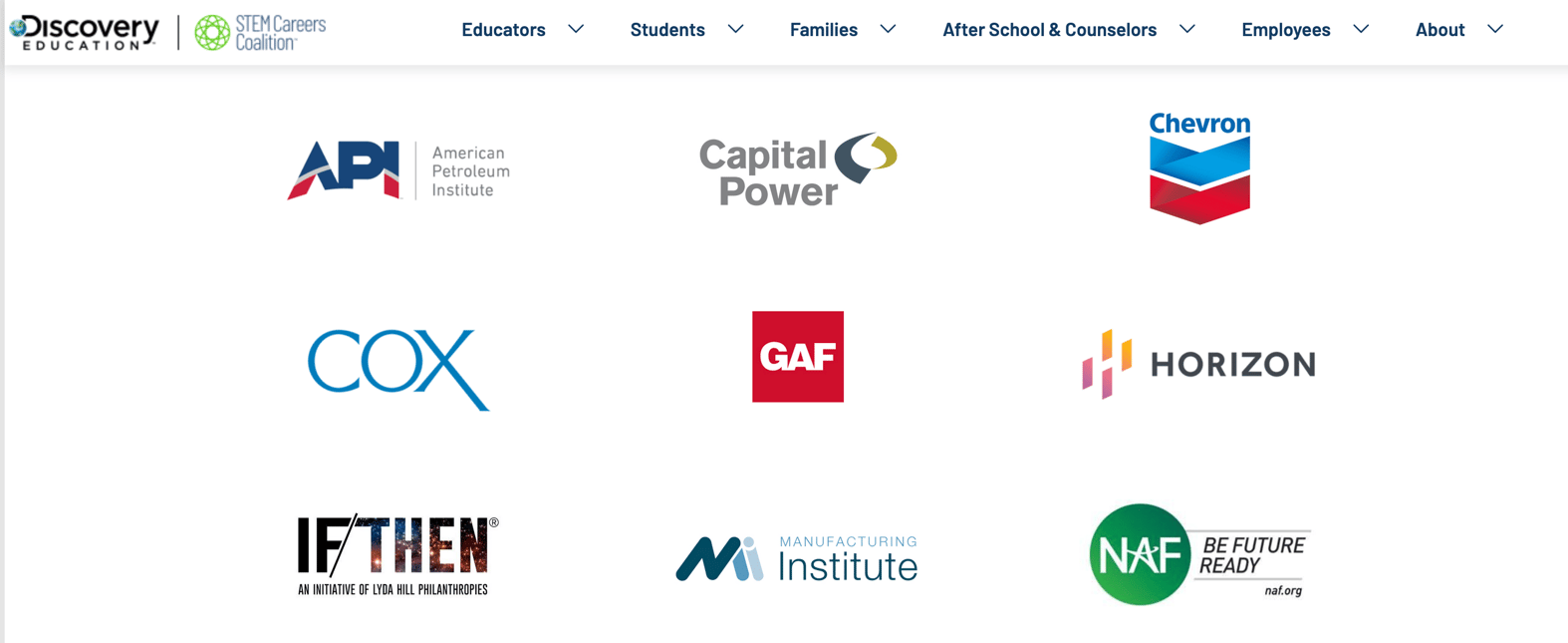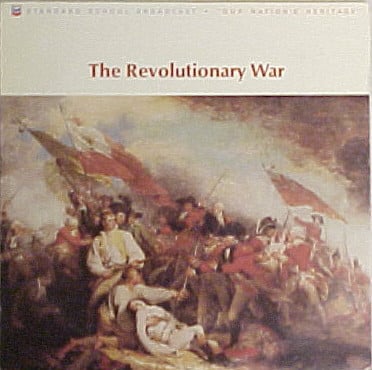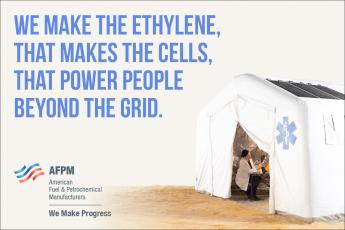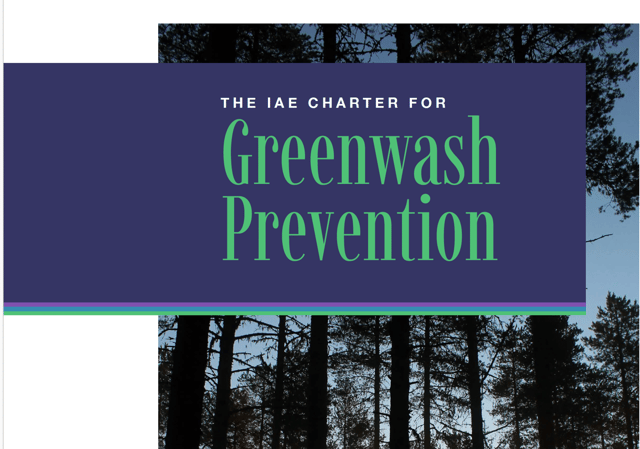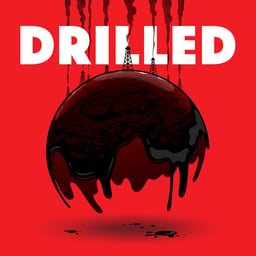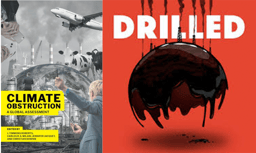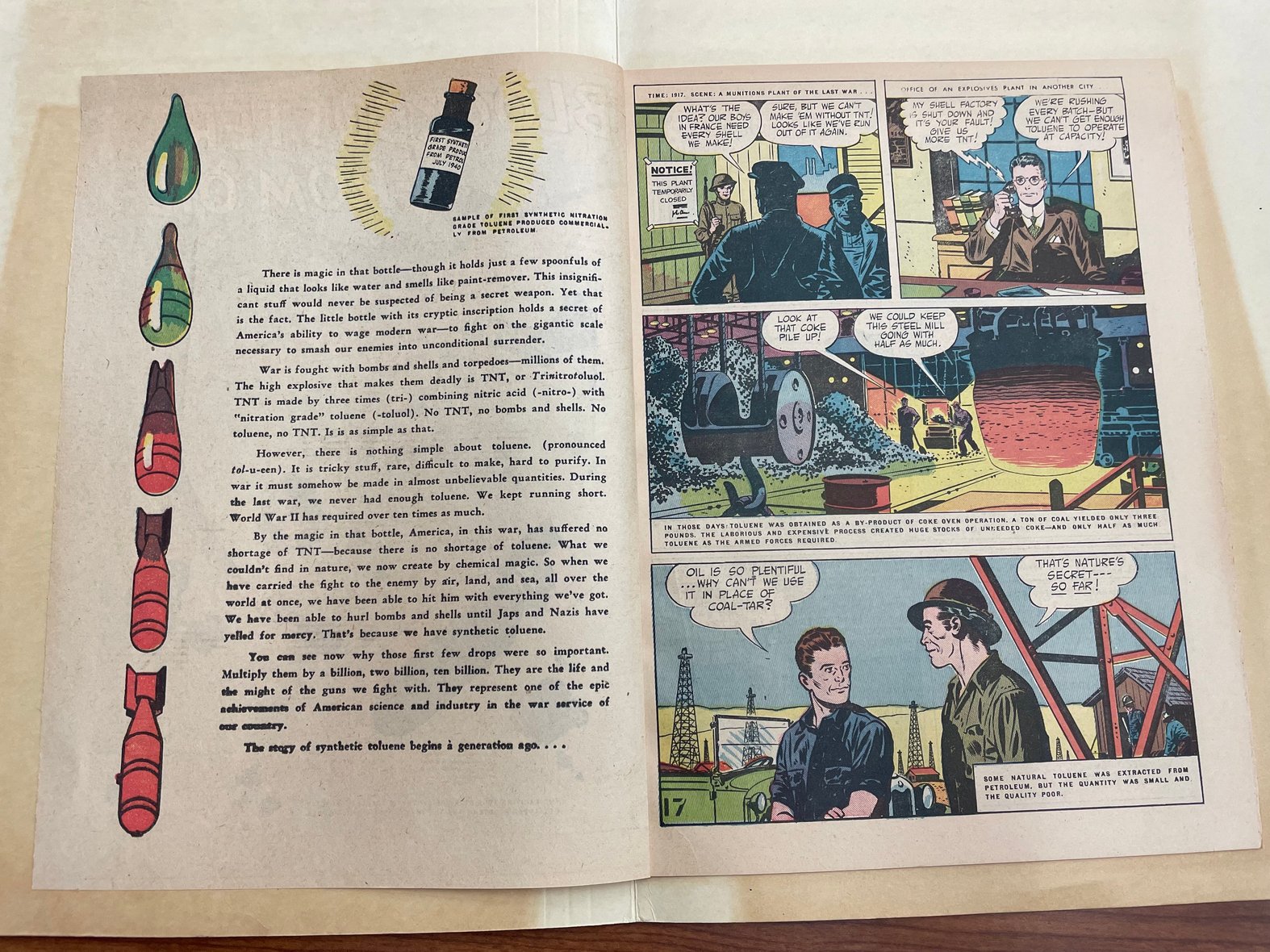
Fossil fuel companies were amongst the earliest clients of the modern PR industry, which emerged in the late 1800s in the U.S. to help industry manage democracy. At the time, coal miners were striking, journalists were publishing exposés on monopolies like Standard Oil, and the U.S. government was passing its first-ever regulations on industry. All that, plus people other than land-owning white men were getting the vote, and for the most part they did not share the opinions and goals of America’s captains of industry. What was a Rockefeller to do? Hire a PR genius like Ivy Ledbetter Lee to help shape the public’s perception of your company, your industry, and even your family.
One of the earliest and most effective narratives PR guys like Lee crafted and deployed on behalf of coal and oil companies was the idea that these companies and these products kept citizens safe. This became particularly easy to do as oil became a necessity for war, particularly with World War I. Lee pulled together the fossil fuel industry’s first trade group, the American Petroleum Institute, in 1917 as WWI was coming to a close. Having seen the industry coordinate to ensure steady supplies of fuel to the front during the war, he thought that level of coordination could be helpful in peacetime too, particularly when the industry needed to message around something no one company necessarily wanted to be associated with (pushing back on regulation, for example).
In the century since, the industry has gone back to this narrative time and time again, often around wars. It surged in a big way post-WWII too, when oil companies wanted to make sure the U.S. government moved away from price controls as quickly as possible, they reminded the public over and over again that oil had won the war and kept them safe.
Internally, in the wake of WWII, we know from the notes and strategies of various PR gurus at the time that fossil fuel companies, and American industry more broadly, were panicking about how comfortable the American public had gotten with government involvement in business. In this “all hands on deck” strategy that Earl Newsom prepared for his clients, Standard Oil of New Jersey (today Exxon), Ford, GM, and Procter & Gamble, for example, he wrote:
In recent years "bigness" has been considered in many circles as the equivalent of badness. Now is a wonderful time for the big companies to let the people understand that it is only because they are large that they can turn out such huge quantities of war materials. With the right kind of advertising, the people's reaction will be •Thank God America has big, well run, privately managed companies like U.S. Steel and General Motors and DuPont to step in and turn out this enormous amount of war stuff that we need."
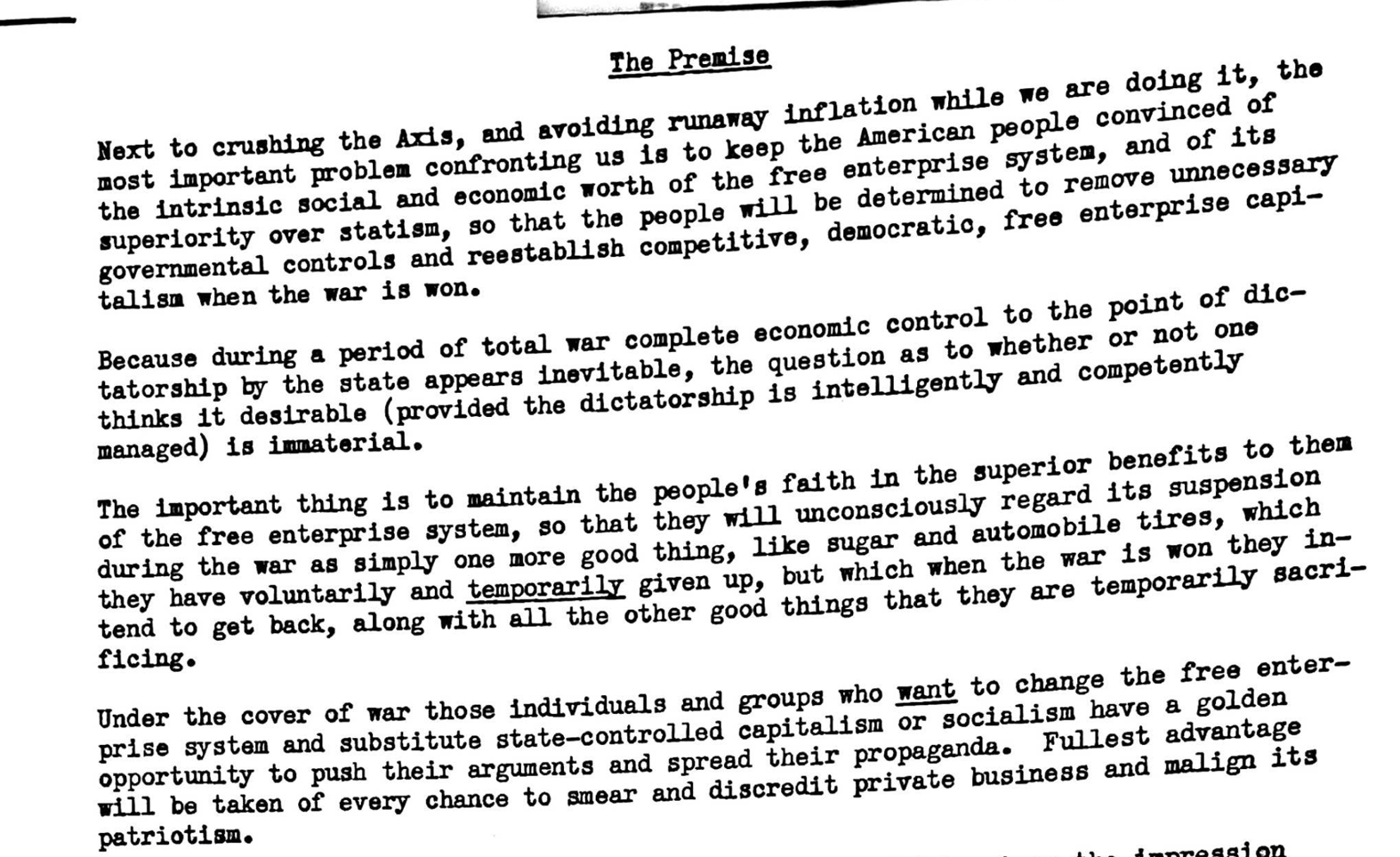
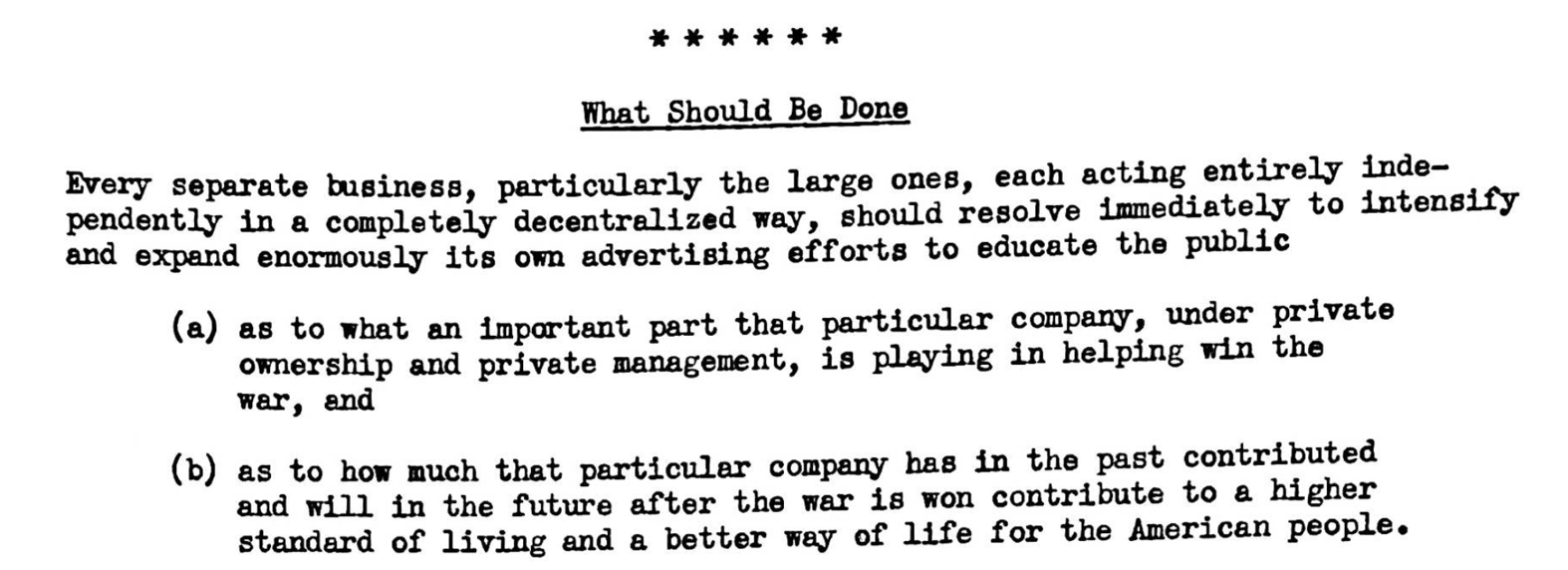
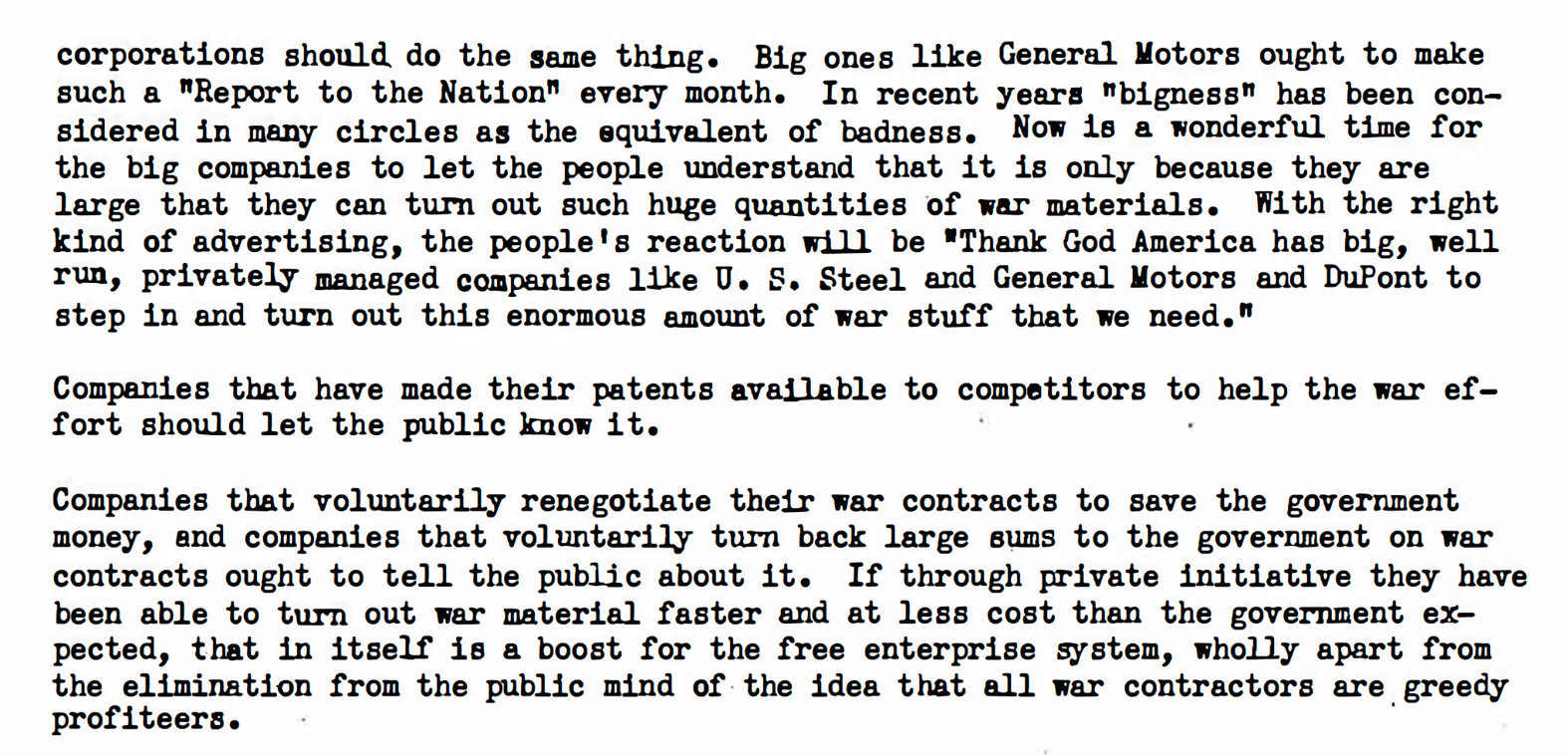
More recently, the fossil fuel industry has used Russia’s invasion of Ukraine to justify increased oil and gas drilling in order to secure our energy resources and keep us safe. It’s extremely effective because, like all good propaganda, there’s a kernel of truth to it. Domestic energy sources do increase security and prosperity. Of course for this narrative to work today it has to ignore the fact that other domestic energy sources would do the job even better and that this particular energy source comes with its own dangers.
This messaging makes its way into school curricula and related materials, too, from Chevron’s Standard School Broadcast recordings, which ran in West Coast schools from 1928-1978, to materials developed by Chevron, API, and the National Association of Manufacturers’ Manufacturing Institute for Discovery Education’s STEM Careers Coalition.
Follow along on our Instagram and TikTok accounts as we trace this and other favorite fossil fuel narratives through company’s ongoing campaigns.
